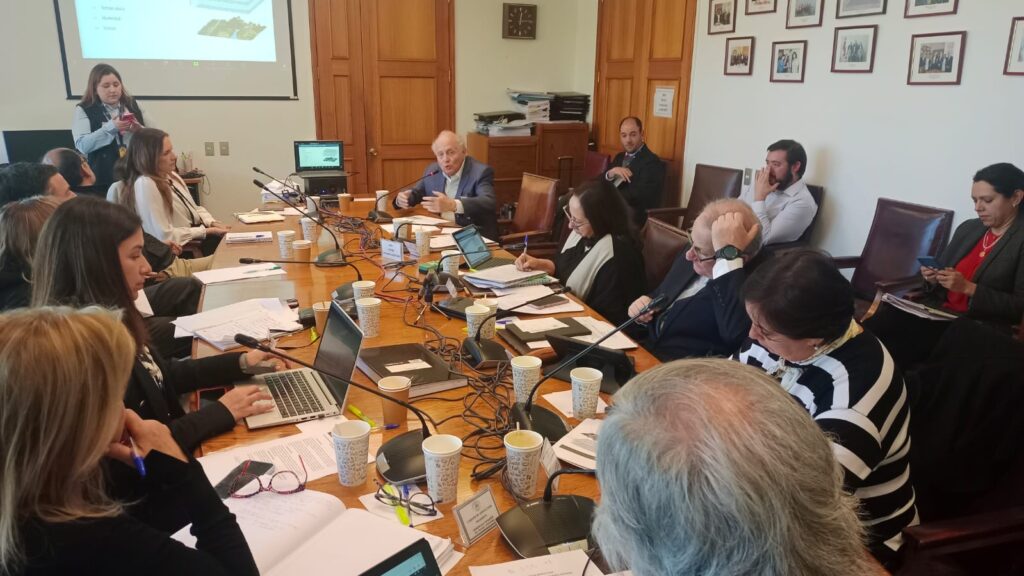Andrés Weintraub, leading the Living Lab Chile, participated in the Agriculture Committee’s session on the forest fire legislation, highlighting findings from the FIRE-RES project.
In the morning of 25 September, a session of the Chilean Senate Agriculture Committee was held in Valparaíso with the aim of advancing the study of the bill Bulletin No. 16.335-14, also known as the draft law to regulate the prevention of forest and rural fires in Chile. Given the severity of recent wildfire seasons, the bill is seen as a significant step toward mitigating the risks posed by forest fires that have increasingly threatened lives and ecosystems across the country. With climate change exacerbating the intensity and frequency of forest fires, this bill particularly seeks to address gaps in current fire prevention methods, forest management, and emergency response frameworks.
The session brought together a diverse group of high-profile experts and stakeholders, including the Minister of Agriculture Esteban Valenzuela and Minister of Housing and Urban Development Carlos Montes, as well as key representatives from municipal, regional, and national organizations. Representing the academic community was Andrés Weintraub (Departamento de Ingeniería Industrial de la Universidad de Chile – Instituto Sistemas Complejos de Ingeniería), who leads the Living Lab in Chile.
